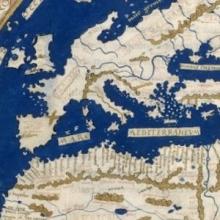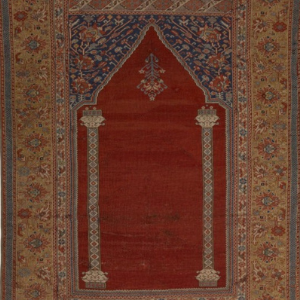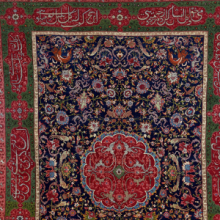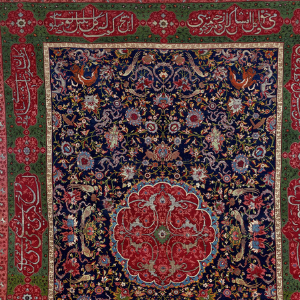Asia
Selections from Ashoka, Rock and Pillar Edicts
The “rock and pillar edicts,” inscriptions that King Ashoka ordered carved in stone on large rocks in prominent places or on tall pillars that he had erected for this purpose, are the best record we have of Ashoka’s reign. The edicts are found in a number of different locations

Short Teaching Module: Emperor Ashoka and Buddhism
Buddhism is based on the ideas of a north Indian prince, Siddhartha Gautama (fl. ca. 500 B.C.E.), called the Buddha (“enlightened one”), who through meditation gained insight into what he understood were cosmic truths.

Short Teaching Module: European Maps of the Early Modern World
I use images of three historical maps for topics on colonial exploration and for interpreting historical evidence in undergraduate courses on history and historical methodology. I have several aims in using the maps.

From John Bartholomew, Literary and historical atlas of America
This unusual map appeared in a 1911 atlas of America by John George Bartholomew, a prestigious Scottish cartographer and geographer. In this map Bartholomew dramatized the provincialism of European cartography three centuries earlier.

Early Modern Ottoman Carpet at the Walters Art Museum
This carpet is a specific type of carpet woven in the Islamic world called a sajjadah or prayer rug.

Islamic Carpet made in Ottoman Turkey at The Metropolitan Museum of Art
This carpet is a specific type of carpet woven in the Islamic world called a sajjadah or prayer rug.

Short Teaching Module: Early Modern Islamic Carpets as Transcultural Objects
Islamic carpets were ubiquitous in the early modern period (1500-1800) in Europe as much as it was in the Islamic world. They were important objects of decor within homes, imperial palaces, and religious buildings.

Islamic Carpets
These three carpets made in the period between the 16th and 18th centuries show two distinct types of carpets produced in the Islamic World for particular culture-specific uses.

Southeast Asia in the Ming Shi-lu
A legendary repository for scholars of Southeast Asia and researchers interested in the Chinese World Order, Southeast Asia in the Ming Shi-lu is a veritable treasure trove of information on a dynamic region during a period of transcendental change.